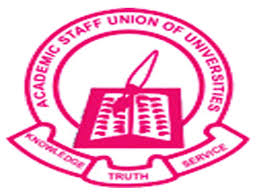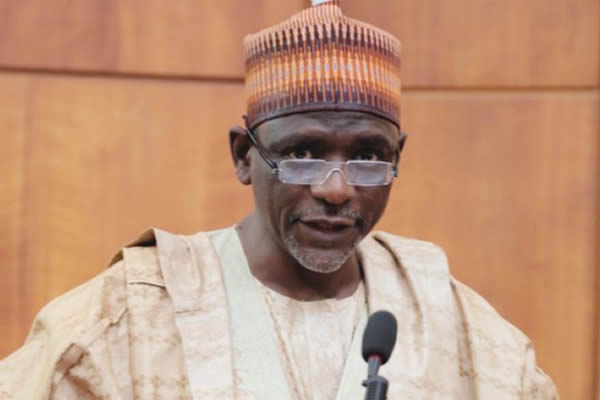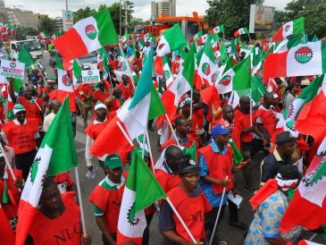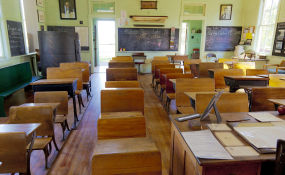
Within the last three months, the Academic Staff Union of Universities and many of its zonal chapters have put their grievances with federal and state governments in the public domain, largely through academic conferences and press releases. The grievances are legion, including fractional, irregular, or non-payment of salaries and other emoluments; non-payment of arrears of 2009-2015 earned allowances; non-implementation of the 2009 agreement with the Federal Government; non-payment of the Needs Assessment Intervention Fund, which stood at N605bn as of the third quarter of 2016; and the reduction of the Federal Government’s budgetary allocation to education from 12 per cent in 2015 to eight per cent in 2016. Even in 2015, when 12 per cent of the budget was allocated to education, there is no evidence to show that more than half of it was released.
The non-payment of salaries has been so severe on members of some local chapters of ASUU that they have embarked on industrial action, some for up to three months. Adekunle Ajasin University, Akungba-Akoko in Ondo State is a case in point. The last subvention paid by the government to the university could only take care of the November 2015 salaries, although the university management has been able to draw upon internally generated revenue to pay salaries up to April 2016. Having exhausted the university’s IGR, the management has been unable to convince a reluctant ASUU to return to work on an empty stomach. AAUA’s case is not alone. There are many state universities throughout the country, where salary arrears go as far back as 12 months!
The question has always been raised as to whether strikes are the best option for ASUU to press its demands. Its answer has always been: “That’s the only language the government understands”. However, while this response might have been appropriate in the past, it is questionable, if not inappropriate, at this time, given the economic recession ravaging all tiers of government. Harping on the excesses of some governors does not necessarily justify a strike action, either, unless it is proved that there are hidden funds somewhere from which outstanding salaries could be paid.
With dwindling federal allocations to the states and the effects of the economic recession on local businesses, many states have been unable to generate enough funds internally to make up the shortfall in federal allocations. What this means is that a state that was short of funds last month is not likely to have more this month and the next. Expecting the government to pay two or three months of salary arrears at a go, especially in older state universities with a large personnel establishment, is like putting a near empty pot on fire and stoking the fire under it more vigorously, hoping for a full pot of meal on the table. The risk of scotching the pot gets higher and higher.
This is not to say that ASUU members on strike in such a university should return to work on an empty stomach. How would they get to work, when they can no longer fuel their cars? How and what would they eat at work? These questions take on an added dimension when the mutual distrust between ASUU and the government is factored in. In the case of Ondo State, this distrust has various dimensions but they are beyond the scope of the present discussion.
There are also other stakeholders that both parties must factor into their negotiations, notably, students and the parents or guardians, who pay their fees. In the case of AAUA, the students were not allowed to complete their semester exams, when the ASUU strike kicked in. What fate awaits such students, whose education may now have to be extended for another semester through no fault of theirs? What about the high hope of timely completion that their sponsors had in them, when they enrolled? And who pays for the extra semester?
Against the above backgrounds, proprietors of state universities should realise that they are dealing not only with ASUU but also with many other stakeholders in university education. They are also putting the image of their university and their administration on the line. They may not mind their own personal image as people who don’t care about their state universities, because their own children never attend them. Nevertheless, they and their state governments have much more to lose. That’s why they should be the ones to initiate a resolution of the impasse between them and ASUU.
This applies to all proprietors of public universities in the country, including the Federal Government. So far, ASUU has been mature enough in avoiding a nationwide industrial action, despite sufficient provocation to do so. It would be tactless of the Federal Government, especially of the Minister of Education, Mallam Adamu Adamu, and the National Universities Commission to fold their arms in the face of mounting warning signs. True, ASUU should also seek alternative ways of reaching the government, without confrontation, it is incumbent on the government to take a lead in resolving the financial crisis across the nation’s public universities.
The grave consequences of poor funding on university education in this country are familiar enough. They are evidenced by poor infrastructure and poorly equipped libraries, laboratories, and classrooms. They are reflected in poorly trained and unemployable graduates. They are also reflected in the abysmal rankings of Nigerian universities in Africa and globally. That’s why I sometimes cringe when I hear some universities use the phrase “world class” even in stating their goal, knowing full well that such a goal is unattainable probably in this millennium.
Let me close with a brief comment on the implication of poor funding on the monitoring function of the NUC. It is widely known in academic circles that the accreditation conducted from time to time by the NUC is a farce. Under the pretext that the NUC is not sufficiently funded to carry out the periodic exercise, universities were often told to put out as much as N15m for their programmes to be evaluated.
In preparing for the exercise, universities allegedly go a-borrowing: They borrow equipment from sister universities and hire ad hoc lecturers. They then source for funds, outside their budget, to pay handsome honoraria to members of the NUC delegation. As soon as the evaluators leave the campuses, the borrowed items are returned and the lecturers return to base. Now, tell me how “good” the graduates of such corruptly approved programmes could ever be. At least, this was allegedly the situation during much of Prof Julius Okojie’s tenure as Executive Secretary of the NUC.
The foregoing shows that our universities are beset by far too many problems. Perhaps, what ASUU should do is pick one or two problems at a time and negotiate their resolution, rather than go to the negotiating table with a whole load of problems. In this respect, the AAUA chapter of ASUU has been sufficiently moderate in its immediate demand: Pay two months’ salaries, and we will go back to work. Two months’ subvention to a university is not too much out of 10.
END




Be the first to comment